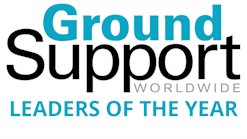If you’re running an airline, an airport or an FBO, chances are you’ll be using some form of social media—be it Facebook, Instagram, Pinterest, LinkedIn or Twitter—to build your brand.
These tools help enhance the passenger experience, grow revenue, and build passenger loyalty in a global economy. However, social media also exposes aviation users to a variety of legal issues.
“Social media involves a combination of several types of law,” says Linda Emery, a shareholder with von Briesen & Roper, a Wisconsin law firm with experience in social media litigation. “Employment is probably the single most litigated area of social media, but there are also contract law issues, securities law concerns, and intellectual property law components as well.
“One of the things we see most frequently is people copying content off the Internet and thinking that it’s OK. They don’t understand that there are copyrights associated with things they're posting,” she continues. “You see it all the time with YouTube, where people think just because it's on YouTube they can take it and use it in any way they want, and they can't.”
According to Emery, savvy organizations know the legal pitfalls of social media and put policies and practices in place to mitigate their risk.
SUBHEAD: Plan Your Posts
Avoiding legal issues begins with developing a solid plan for what your organization hopes to accomplish via social media, according to Rowan Childs, director of social media and client services for Pop-Dot Marketing, a Madison, Wis.-based marketing firm that helps clients develop their Web presence.
“They need to know what they are trying to do and how they want to present themselves,” she says, stressing that if they enter the space too quickly—without solid planning--they may make mistakes that open them up to legal litigation.
Content for social media requires careful consideration. Planners must determine the types of information that are acceptable and unacceptable to post, and communicate these guidelines to everyone. “Things that would not be acceptable include politics, religion, and anything too racy or sexual,” Childs says, adding it’s also unacceptable to insult other businesses or their products.
According to Emery, everything that’s posted needs to be fair and accurate. “The most common legal issue involves overstating products and services; things that can get you into a dispute with a competitor and can be a very expensive proposition,” she says. “If you put something out there, and it turns out that it is not true, you could get into trouble.”
When sharing information, it’s important to know copyright laws and adhere to them. “I taught a class a couple of months ago, and the first question I asked the people in the class, who were going to be journalists, was if they could copy everything that was on social media sites. They said, ‘Yes,’ ” she says. “All of them were wrong. Copying stuff from other people's sites is a problem. That’s something to look out for. You can’t post it if you don’t know who owns it.”
Emery says posting links to information is OK, but putting up content without permission is not. “Remember, whatever you post on your site is fair game for litigation,” she says.
There are FTC guidelines covering a company's use of social media. Endorsements or testimonials, for example, must disclose whether the person who is responding is an employee of the company. Likewise, if someone complains about content, business users need policy in place to take the issue offline and get it resolved.
Sometimes social media sites offer giveaways, contests or sweepstakes, and Emery cautions there are rules for this as well. Most social media sites detail these guidelines. “You see it all the time. Companies ask visitors to take a specific action, such as like their page or share a post, to be part of the contest,” she says. “But the law is very clear about that. You can allow people to volunteer to be part of the contest but you cannot ask them to do something as a condition for entering it.”
In addition, only certain individuals should be tasked with posting and monitoring social media. “If they are doing the posting in-house, there needs to be authorized people in charge of it, and only those people should be posting,” says Childs. “You don’t want everyone to have access to your social media page.”
Finally, checks and balances should be instituted to ensure nothing slips through the cracks. “We hear about things that happen by accident all the time; someone forgot to do something, a photo that should not have been posted slips through,” she says. “If you have a strategy and a plan, at least you know what posts are planned for the next two weeks. Planning things out can avoid some costly mistakes.”
Childs emphasizes that once mistakes happen, the information is out there forever—even if you take it down. “What you post or don’t post needs to be part of the strategy, and there must be specific people in charge of that.”
SUBHEAD: Rules for Visitors
Controlling what others post to your social media sites is also a concern, according to Emery. “What happens if you have someone posting on your social media site and they're saying a lot of really negative things? What are your legal rights?” she asks.
Airports, airlines and FBOs need to develop rules of use for their social media pages. These rules should give them the authority to remove posts they find unacceptable, offensive or untrue. “The rules should say, ‘We reserve the right to take down any content that we find offensive,’ ” she says. These rules should also include a privacy policy.
“Your first line of defense is to go to the social media site itself. There's an email form you fill out when you find something offensive and you can ask to have it taken down,” she says. “They are pretty good about removing things, but it might take a couple days.”
Monitoring what others are posting is an essential part of social media. “There needs to be someone dedicated to checking posts, monitoring messages and looking at notifications,” Childs says. “If you don’t have someone checking and taking action as needed, how many people will see it before it comes down?”
SUBHEAD: Policy as Protection
"The most important thing is to have a social media policy as part of the employment handbook,” says Emery. “This policy should detail how the employees represent themselves in the public domain.”
Naomi Angel, a partner with the law firm, Howe & Hutton Ltd., spells out the elements of a social media policy in her presentation “Managing Risk in the World of Social Media. According to this document, policies should:
--Clearly address what is prohibited activity,
--Detail how social media will be monitored and audited,
-- List what the company will have access to in terms of company email and texts, as well as what can be released to third parties, and
-- Include employee acknowledgement of receipt and understanding of the policy, and a waiver of privacy when using company property.
A policy isn’t something that can be developed and then ignored. According to Emery, these policies should be revisited annually, and employees regularly reminded of them as well. “Technology is moving so fast so if you don't update it with a fair amount of regularity, you can get yourself into a world of hurt,” she says.
If employees are found to be in violation of the policy, Emery indicates the company should follow the disciplinary policy they would use for anything else. “Depending on the severity of the behavior, you would typically go through a disciplinary process where the first offense is an oral warning, then a written warning, moving up to a suspension or termination,” she says.
When using social media, it’s important to know the law and react accordingly. Those who do that will be able to take advantage of all the benefits that social media has to offer. Those who don’t may be putting themselves at risk.




